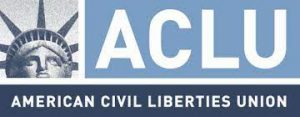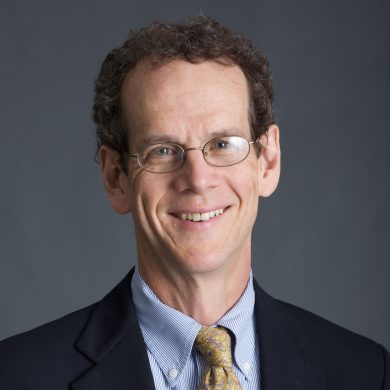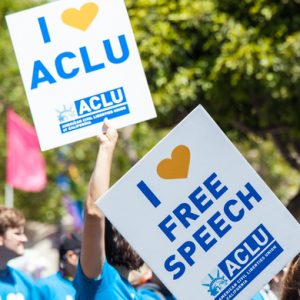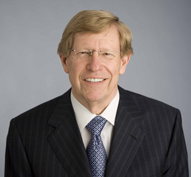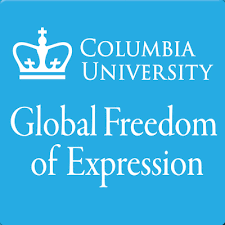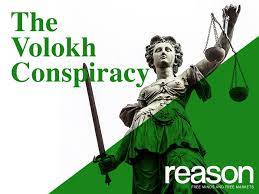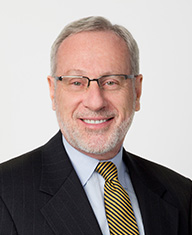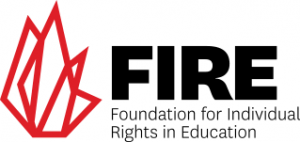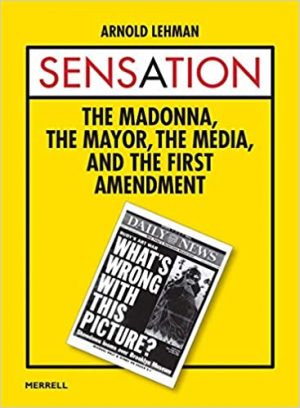First Amendment News 301: The ACLU free speech controversy flares up yet again
“At a time when liberals and conservatives are locked in a bitter debate over where the real danger to free speech lies, is it still possible to have an organization that fights for the full spectrum of civil liberties — for all Americans?”
— Marin Cogan, The New Republic (July 16, 2018)
“We need to consider whether some of our timeworn maxims — the antidote to bad speech is more speech, the marketplace of ideas will result in the best arguments winning out — still ring true in an era when white supremacists have a friend in the White House.”
— Susan Herman, former ACLU president (Sept. 21, 2020)
“If the Brandeisian view of speech is fatally flawed, what is a better, or at least a more realistic, view?”
— Ellis Cose, “The Short Life and Curious Death of Free Speech in America” (2020)
Three years ago, Wendy Kaminer wrote an op-ed in The Wall Street Journal titled “The ACLU Retreats From Free Expression.” In it, she took the national civil rights and liberties group to task for abandoning the cause it so long championed: “free-speech advocates know the ACLU has already lost its zeal for vigorously defending the speech it hates. ACLU leaders previously avoided acknowledging that retreat, however, in the apparent hope of preserving its reputation as the nation’s premier champion of the First Amendment.” That prompted a response from David Cole, the ACLU’s national litigation director, whereafter Nadine Strossen (a former president of the ACLU) and Ira Glasser (a former executive director of the ACLU) weighed in with their own takes on the matter.
As noted below, the ACLU free speech controversy continues, this time sparked by a recent New York Times article by Michael Powell. Whatever the actual merits of the charges leveled against the ACLU on this question, one thing now seems obvious: when it comes to protecting freedom of expression, the ACLU has a real perception problem.
New York Times news item: ‘A.C.L.U. Faces an Identity Crisis’
This from Michael Powell writing in The New York Times:
The A.C.L.U., America’s high temple of free speech and civil liberties, has emerged as a muscular and richly funded progressive powerhouse in recent years, taking on the Trump administration in more than 400 lawsuits. But the organization finds itself riven with internal tensions over whether it has stepped away from a founding principle — unwavering devotion to the First Amendment.
Its national and state staff members debate, often hotly, whether defense of speech conflicts with advocacy for a growing number of progressive causes, including voting rights, reparations, transgender rights and defunding the police.
Those debates mirror those of the larger culture, where a belief in the centrality of free speech to American democracy contends with ever more forceful progressive arguments that hate speech is a form of psychological and even physical violence. These conflicts are unsettling to many of the crusading lawyers who helped build the A.C.L.U.
The organization, said its former director Ira Glasser, risks surrendering its original and unique mission in pursuit of progressive glory.
“There are a lot of organizations fighting eloquently for racial justice and immigrant rights,” Mr. Glasser said. “But there’s only one A.C.L.U. that is a content-neutral defender of free speech. I fear we’re in danger of losing that.”
The ACLU replies
This from David Cole, the ACLU’s national litigation director:
Has the ACLU lost its way? This appears to be a perennial question. In 1994, then-ACLU President Nadine Strossen wrote a 17-page article with 54 footnotes, responding to the charge that the organization “is abandoning its traditional commitment to free speech and other classic civil liberties and is becoming a ‘trendy’ liberal organization primarily concerned with equality and civil rights.” Sixteen years before that, in 1978, J. Anthony Lukas wrote a feature for The New York Times Magazine titled “The ACLU Against Itself,” recounting the controversy over whether the group should have represented a group of Nazis who sought to march in Skokie, Illinois. The question is not new.
But the answer remains the same. The ACLU is committed to the principle of free speech today, just as it was in the 1990s, 1970s, and long before that. And we are specifically committed to the proposition that the First Amendment’s guarantees (like those of the rest of the Constitution) apply to all, not just to those with whom we agree. At the same time, the ACLU also remains devoted to defending other fundamental civil rights and civil liberties, including equal protection of the law — as we always have been. Addressing the tensions that sometimes arise between these commitments is not easy. But we seek to do so, today as always, not by abandoning any of our core commitments, but by acknowledging and confronting the conflicts in as forthright, inclusive, and principled a way as we can.
Some have charged that in doing so we have abandoned our fidelity to the First Amendment in the years since our representation of a white supremacist protester in Charlottesville. In that case, we challenged the revocation of his permit to protest the removal of a monument to Confederate General Robert E. Lee. The protest turned violent, the police failed to intervene, and ultimately one of the alt-right adherents, Alex Field, rammed his car into a group of counter-demonstrators, killing one person and injuring 19 others. The Charlottesville tragedy and the ACLU’s role in defending the protesters’ permit led to considerable controversy, inside and outside the ACLU.
In its wake, I led a committee representing a wide range of divergent views within the ACLU in developing guidelines for selecting cases where they present conflicts between values that the ACLU defends. We reaffirmed in that document that “As human rights, these rights extend to all, even to the most repugnant speakers — including white supremacists — and pursuant to ACLU policy, we will continue our longstanding practice of representing such groups in appropriate circumstances to prevent unlawful government censorship of speech.”
At the same time, we acknowledged the costs that can come with that representation, including to other interests and work of the organization, and outlined ways to address and mitigate the costs when we do decide to embark on that representation. That can mean making clear in public statements that we abhor the speakers’ views even as we defend their right to express them, supporting counter-protesters, and investing any attorneys’ fees we obtain in connection with the work to advance the views that the speaker opposed and that we support. Some saw even this document’s acknowledgment of the complexity of such work as an abandonment of principle, but we saw it as an honest effort to confront the challenge of being a multi-issue organization.
Some of our critics argue that by considering the content and impact of the speech in assessing how to proceed, we are walking away from a commitment to all free speech. That’s an ahistorical and overly simplistic analysis of our free speech work: One must consider the content of the speech and the nature of any regulations to assess whether a First Amendment claim is likely to prevail. Thus, we considered the content of speech in choosing to defend the Nazis in Skokie in the 1979; in representing NAMBLA when it was sued in 2000 for allegedly inciting a murder; in filing a brief in the Supreme Court supporting the Westboro Baptist Church’s anti-gay protests in 2010; and in filing another Supreme Court brief in 2014 supporting the First Amendment rights of a man charged with threatening his ex-wife on the internet. The guidelines we adopted did not change our policy, and in fact reaffirmed it. Instead, they merely codified our best practices, and sought to provide guidance and a process for assessing future cases that involved conflicting ACLU commitments.
One thing we rejected was any abandonment defending those with whom we disagree. Yet a small number of disgruntled voices continue to charge that we have done just that. But the record demonstrates otherwise. Since 2017, we have supported the constitutional rights of the NRA, the Koch-funded Americans for Prosperity Foundation, anti-Semitic protesters, Trump supporters, Trump himself, Republican challengers to a Democratic gerrymander, right-wing provocateur Milo Yiannopoulos, and conservative and anti-gay student groups, to name but a few. We have filed multiple Supreme Court briefs with the Cato Institute, the American Conservative Union, and the Institute for Justice. Here is just a sample of the work we have done since 2017 in which we have defended or stood alongside conservative voices and groups, because we believe constitutional principle demanded it, even if we disagreed with what the groups and individuals had to say.
Related
- “Is the ACLU Retreating On Free Speech? The Controversy and Debate,” First Amendment Watch (Aug. 1, 2018)
- Ronald Collins, “The ACLU free speech controversy – a history,” The Free Speech Center (July 5, 2018)
- Megan McArdle, “The ACLU’s divided heart,” The New York Times (June 26, 2018)
- Eugene Volokh, “Prof. Ron Collins on the freedom of speech and ACLU fundraising,” The Washington Post (Feb. 10, 2016)
→ ACLU policies on free speech on campus
Op-ed: Cole, Jaffer, & Olson on spy courts & transparency
One of the most powerful courts in the country, the Foreign Intelligence Surveillance Court, is cloaked in unnecessary secrecy. It authorizes panoramic surveillance programs that can have profound implications for the rights of millions of Americans, but many of its significant decisions have been withheld from the public.
The three of us have different views about how expansive the government’s surveillance powers should be. One of us, as solicitor general of the United States, defended the broad authority granted to federal officials to track and intercept communications for law enforcement and intelligence-gathering purposes under the U.S.A. Patriot Act; the other two have been among that law’s most active critics.
But we agree about one crucial point: The needless secrecy surrounding the surveillance court is bad for the court, the intelligence agencies and the public — and it is also unconstitutional.
News executives meet with AG Garland to protest Trump-era Justice Department’s efforts to seize phone and email records of journalists
Executives from CNN, The New York Times and The Washington Post met June 14 with Attorney General Merrick Garland to protest the Trump-era Justice Department’s efforts to seize phone and email records of journalists.
After the hour-long meeting in Washington, Bruce Brown, executive director of the Reporters Committee for Freedom of the Press, said the journalists explained how this represented an “existential crisis” for the organizations.
None of the news executives would answer questions, with Brown saying they had agreed the meeting was off the record. The meeting included the publishers of the Times and Post, A.G. Sulzberger and Fred Ryan, respectively, as well as Post executive editor Sally Buzbee and Sam Feist, CNN’s Washington bureau chief.
The Justice Department said the group had a “productive conversation about the need for new rules” governing the ability of prosecutors to seek this material.
New global survey on free speech
This via Justitia:
A global survey “Who Cares about Free Speech?” has been conducted by YouGov for the legal think tank Justitia. The survey asks citizens in 33 countries questions about their attitude towards free speech in principle and testing their attitude when confronted with controversial categories of speech and trade-offs.
Support for the principle of free speech is very high, averaging around 90 percent in all countries, but it drops substantially when put to the test against supposedly competing values such as statements offensive to religion and minority groups or statements disclosing information that could destabilize the national economy.
To assess the actual support for free speech in a country, the survey includes a composite measure, the Justitia Free Speech Index, based on answers to eight “tough” questions. The top scorer is Norway with 80 points average approval on all eight questions while Pakistan is at the bottom with only 38 points.
The findings in “Who Cares about Free Speech?” indicate that Scandinavians and Americans are most supportive of free speech while citizens in Latin America, other parts of Europe, Australia, Israel, and the East Asian democracies (Japan, South Korea, and Taiwan) also show relatively strong support. Meanwhile, support for free speech is weaker in Russia, Turkey, other parts of Asia, and Africa. Egypt, Kenya, Pakistan, Malaysia, and Tunisia receive the lowest scores on the Justitia Free Speech index.
Jacob Mchangama, director of the legal think tank Justitia, says of the findings:
“The survey is a stark reminder that, even though the principle of free speech is very widely accepted, we’ve yet to develop a truly robust culture of free speech at the global level. Even nations with very strong free speech traditions such as the Scandinavian countries and the United States enjoy far from universal support for controversial speech.
Given that free speech is essential for democracy, freedom, and human flourishing, it is encouraging that more than 90 percent of the global population supports free speech in principle. But once people are forced to measure their support of the value of free speech in the abstract against trade-offs and supposedly competing values, the near-universal support plummets, and big differences in attitudes emerge.
These differences have very real consequences since they drive and legitimize the suppression of political dissent and the persecution of religious and sexual minorities and help consolidate the global development towards increasing authoritarianism. In an increasingly digital world in which global platforms cater to billions of people, the tolerance gap also risks fueling a race to the bottom in which the lowest common denominator becomes the bar for permissible speech as policed by unaccountable private tech companies with little transparency.
Unless we develop a more tolerant attitude towards ideas that clash with deeply-held values, there is a risk that the ongoing free speech recession, which has affected the right to speak truth to power in authoritarian states, liberal democracies, and private social media platforms, will only be perpetuated. As George Orwell so succinctly put it, if free speech means anything, it is the right to tell people what they do not want to hear.”
The survey has been conducted by YouGov in February 2021. It is part of the Future of Free Speech project, which is a collaboration between Copenhagen-based judicial think tank Justitia, Columbia University’s Global Freedom of Expression, and two academic experts, Svend-Erik Skaaning and Suthan Krishnarajan, from Aarhus University.
→ Justitia’s director Jacob Mchangama is also the author of the forthcoming book “Free Speech: A History from Socrates to Social Media” (Basic Books, Feb. 8, 2022)
11th Circuit: Mansion not protected expressive conduct
Is a house – even a carefully planned 20,000 square foot mansion – a form of expressive conduct protected by the First Amendment or is it primarily a place to eat, sleep, and live without expressive elements? That was the question that led to a spirited debate among a sharply divided three-judge panel of the Eleventh U.S. Circuit Court of Appeals in Burns v. Town of Palm Beach.
The First Amendment protects a lot of things ranging from tattoos to nearly nude performance dancing to burning an American flag as a form of protest. The Eleventh Circuit sparred sharply over whether the First Amendment also protects what might be considered expressive elements in residential architecture. Ultimately, the panel ruled 2-1 against a Palm Beach homeowner who sought to replace his existing home with a 20,000 square foot home in the minimalist International Style. The majority reasoned that the new mansion “looked like an elephant next to his neighbors’ poodles.”
Donald A. Burns had lived in Palm Beach for years in a 10,063 square-foot-home in a traditional Bermuda style on the Atlantic Ocean in Palm Beach. However, in 2013 Burns decided to scrap his traditional home to build a new mansion—originally slated at 25,000 square feet—in a mid century modern style. Burns indicated that he wanted his new home “to be a means of communication and expression of the person inside me.” He also contended that it communicated his message that he was different from his neighbors.
However, the town council submitted the plans to a seven-member architectural review commission, which had to approve of the plans. The committee balked at the new mansion because it was very dissimilar to other homes in the area, and was too large compared to surrounding homes. Burns submitted two redesigns, but ultimately the commission voted 5-2 against his plans for a new home.
Instead of appealing the commission’s decision to the town council and then to the state circuit court, Burns sued in federal district court. He alleged that the commission and town violated the First Amendment by prohibiting him from engaging in his expressive conduct through his preferred residential architectural style.
A federal magistrate ruled against Burns, finding that the predominant purpose of his new mansion was not to convey expression. Instead, the magistrate judge deemed the home as non-expressive and said its primary purpose was to serve as a residence.
The federal district court adopted the magistrate’s findings and also ruled against Burns. The district court also applied the three-part predominant purpose test from Mastrovincenzo v. City of New York (Second Cir. 2006). This test asks whether (1) the owner of the structure subjectively intends to convey a message; (2) the predominant purpose of the structure was to communicate a message; and (3) a reasonable observer likely would understand the message.
The district court, like the magistrate, concluded that the predominant purpose of the structure was to serve as a residence. The district court also determined that a reasonable observer would not understand Burns’ message.
Burns then appealed to the Eleventh Circuit Court of Appeals, which ruled against him 2-1.
Related
Georgia appellate court reverses $1.5 million nuisance award against abortion clinic
In McBrayer v. Governors Ridge Office Park Ass’n, Inc., an office park and several of the owners within the park sued an abortion provider for nuisance, and were awarded over $1.17 million plus over $311,000 in attorney fees. What was the alleged nuisance?
[1.] McBrayer’s practice attracted protestors to the public street in front of the office park, some of whom harassed employees or invitees of the businesses in the office park. Protestors could be limited to a handful or up to hundreds, and some of them displayed placards with images of terminated fetuses. Building owners testified that the presence of the protestors disrupted their businesses and made it difficult to sell or rent space in their buildings.
[2.] At one time in 2012, a suspicious fire was started at McBrayer’s building. Governors Ridge was also aware of violence targeted against other clinics which provided abortion services, one of which was also owned by McBrayer.
[3.] In 1998, Governors Ridge also complained about loitering in the common area of the park as well as several occasions of bodily “voiding” in the common area, which Governors Ridge attributed to patients and guests of McBrayer.
Federal district court strikes down West Virginia attorney advertising law
In Recht v. Morrissey (F. Dist. N W VA, No. 5:20-CV-90) a Federal District Court in West Virginia struck down a state statute containing several prohibitions related to lawyer advertising in cases relating to injuries from medication or medical devices — i.e., a set of statutes titled the “Prevention of Deceptive Lawsuit Advertising and Solicitation Practices Regarding the Use of Medications Act,” codified as W.Va. Code § 47-28-1, et seq., The court, in an opinion by Judge John Preston Bailey held:
- The restrictions provided by the Act are content-based and speaker based;
- The fact that the Act is content-based and speaker based implicates strict scrutiny;
- While the State may impose reasonable restrictions to speech, in order to do so, the State must demonstrate a compelling state interest;
- The State has failed to demonstrate a compelling state interest to support the validity of the Act;
- Even if strict scrutiny were not appropriate, the State must still demonstrate a substantial government interest;
- Any restrictions must be narrowly tailored, justified without reference to the content of the regulated speech, leave open ample, alternative channels of communication, and have no less restrictive alternative that would serve the State interest;
- The State has failed to demonstrate a substantial government interest sufficient to permit the infringement on the First Amendment.
- Finally, contrary to the assertion of the plaintiffs, this Court finds the Act’s provisions to be severable. See North Carolina State Conf. of the NAACP v. McCrory, 831 F.3d 204 (4th Cir. 2016); Barr, supra.Accordingly, this Court will GRANT Plaintiffs’ Motion for Summary Judgment [Doc. 52]. The State of West Virginia is hereby permanently enjoined and prohibited from enforcing the provisions of W.Va. Code § 47-28-3(a)(2), (3), and (4), and (b).
The statute was drafted by the U.S. Chamber of Commerce and was also enacted in Texas and Tennessee. It is currently under consideration by the Louisiana legislature.
→ The case was successfully argued by Robert S. Peck of the Center for Constitutional Litigation.
Coming to FAN soon: Book review by Judge Robert Lasnik
In 1943, Time Inc. editor-in-chief Henry R. Luce sponsored the greatest collaboration of intellectuals in the twentieth century. He and University of Chicago president Robert Maynard Hutchins summoned the theologian Reinhold Niebuhr, the Pulitzer-winning poet Archibald MacLeish, and ten other preeminent thinkers to join the Commission on Freedom of the Press. They spent three years wrestling with subjects that are as pertinent as ever: partisan media and distorted news, activists who silence rather than rebut their opponents, conspiracy theories spread by shadowy groups, and the survivability of American democracy in a post-truth age. The report that emerged, A Free and Responsible Press, is a classic, but many of the commission’s sharpest insights never made it into print.
Journalist and First Amendment scholar Stephen Bates reveals how these towering intellects debated some of the most vital questions of their time—and reached conclusions urgently relevant today.
FIRE to host Faculty Network Conference
With conditions improving around the country after more than a year of pandemic precautions, FIRE is excited to resume our in-person programming this year — and with that, we’re delighted to invite applications to attend our Faculty Network Conference! This year’s conference is scheduled to take place from October 14–16 in downtown Chicago, with conference sessions to be held at the University of Chicago’s Gleacher Center.
As in past years, this year’s Faculty Network Conference will bring together a diverse group of faculty from a variety of institutions and academic fields for a weekend of presentations and discussions of core issues affecting academic freedom and faculty rights. (Our call for proposals ended on May 31, and we will be notifying those who submitted proposals of our decision in the next one to two weeks.)
Beyond these discussions, faculty will benefit from the invaluable experience of meeting and networking with colleagues from around the country, united by a shared interest in defending academic freedom and promoting rigorous intellectual discourse.
As with our past conferences, faculty attendees are eligible to receive a stipend of up to $750 to assist with the costs of travel and lodging.
Faculty are encouraged to apply to attend our conference as early as possible, before our limited number of spaces fill up! Applying early maximizes your chances of being accepted, though FIRE will also try to give extra consideration to faculty who have not attended our conferences before. More information can be found on the conference page, and interested faculty can email facultyoutreach@thefire.org with any questions.
We’d love to see you in October, so be sure to apply today!
Op-ed: ‘The PRO-SPEECH Act is anything but First Amendment-friendly’
This from Elizabeth Nolan Brown writing for Reason:
It may be dubbed the “Promoting Rights and Online Speech Protections to Ensure Every Consumer is Heard” (PRO-SPEECH) Act, but a new bill from Massachusetts Republican Sen. Roger Wicker is anything but First Amendment-friendly. Wicker’s measure would ban huge swaths of online content moderation, forcing private internet forums to host speech that may currently violate their terms of service and be considered hateful, harassing, vulgar, or otherwise undesired.
The bill would also take aim at freedom of association and free markets, disallowing some tech services—such as app stores and cloud computing companies—from choosing what products they offer or what businesses they’ll contract with.
Introduced Thursday, the so-called PRO-SPEECH Act strikes at the heart of First Amendment protections, compelling companies under threat of sanction from the government to platform messages they otherwise wouldn’t.
Essentially, Wicker’s bill is ‘net neutrality’ legislation—something that was vehemently opposed by Republicans of yore—but for online content platforms, search engines, and marketplaces rather than internet service providers. The bill would make it illegal for digital entities to block or impede access to “any lawful content, application, service, or device” that doesn’t interfere with platform functionality or “pose a data privacy or data security risk to the user.”
The bill would also explicitly ban taking action against a user based on “political affiliation.” Tech companies could no longer choose to ban, for instance, Nazi content or decline to host web forums devoted to white supremacist political groups. Web forums couldn’t choose to be exclusively for conservative users, or progressive users, or so on. . . .
The Federal Trade Commission (FTC) would have broad discretion to enforce the law, making it ripe for politics-based abuse. Small internet businesses would be exempt…except for when the FTC decides they are not.
Violations would be considered unfair and deceptive practices under the Federal Trade Commission Act. Anyone could register a complaint with the FTC alleging a violation, creating a massive new undertaking for the commission as internet moderation police and a massive new layer of bureaucracy for tech companies, which would be required to respond to every complaint.
Four forthcoming books. . . & a novel
Death and bomb threats over an art exhibition! A major battle with the mayor of New York City and the New York Times! Looking back, Arnold Lehman, director of the Brooklyn Museum, and his colleagues were not prepared for what was to happen. No one could have anticipated that SENSATION: Young British Artists from the Saatchi Collection would become the biggest art story in the history of art history. It has taken him two decades to fully absorb and clearly reflect on what happened at the Brooklyn Museum in 1999–2000. The intense controversy swept the exhibition, the museum, and Chris Ofili’s The Holy Virgin Mary painting to international attention for six months. While 175,000 people saw the exhibition and millions read and heard about it daily, they never knew of the threats and challenges that kept the museum staff awake at night. Mayor Rudy Giuliani, who never saw the painting, focused his rage at The Holy Virgin Mary; rescinded the museum’s municipal funding to force it to close the exhibition; and attempted to evict it from its hundred-year-old landmark. The city’s most conservative media and ultra-religious groups inflamed the conflict.
SENSATION, selected from controversial collector Charles Saatchi’s contemporary British art collection, was first shown at London’s Royal Academy in 1997, to an outcry over the portrait of child murderer Myra Hindley. Its opening at the Brooklyn Museum in 1999 drew tabloid headlines such as “B’klyn gallery of horror―Gruesome museum show,” and “Butchered animals, a dung-smeared Mary and giant genitalia.” The New York Times accused the museum of wrongdoing in high-profile but often false and inaccurate investigative reports, most dismissed earlier by the court. In a story as gripping as a fictional thriller, the mayor and city eventually settled with the museum, awarding it a permanent injunction, the restoration of city money, and substantial funds for its new entrance.
A novel take
A Censor’s Notebook opens with an exchange of letters between “Liliana Corobca” and Emilia Codrescu, long the female chief of the Secret Documents Office in Romania’s feared State Directorate of Media and Printing—the government branch responsible for Censorship.
Codrescu had been responsible for the burning and shredding of the censors’ notebooks, viewed as State secrets but, prior to fleeing the country in 1974, she had stolen one such notebook.
Now, forty years later, she makes the notebook available to Liliana for the newly instituted Museum of Communism. The work of a censor—a job about which it is forbidden to talk—is revealed in this notebook, which discloses not only the structures of the institution of censorship but also the life behind the scenes for one of those deciding the fate of books, with their distress, outrage, humor and guilt. It’s just five months in the life of censor Filofteia Moldovean, but they are so tightly packed with events that they give a sense of this mysterious institution as a world unto itself.
Professional readers and ideological error hunters, beset with hundreds of manuscripts, strict deadlines, and threatening penalties, the censors lose their identity, and, often frazzled by neuroses and other illnesses, seek healing, sometimes through writing. A Censor’s Notebook is a window into the intimate workings of censorship under communism, steeped in mystery and secrets and lies, confirming the power of literature to capture personal and political truths.
New & forthcoming scholarly articles
With digital surveillance and censorship on the rise, the amount of data available online unprecedented, and corporate and governmental actors increasingly employing emerging technologies like artificial intelligence (AI), machine learning, and facial recognition technology (FRT) for surveillance and data analytics, concerns about “chilling effects”, that is, the capacity for these activities “chill” or deter people from exercising their rights and freedoms have taken on greater urgency and importance. Yet, there remains a clear dearth in systematic theoretical and empirical work point. This has left significant gaps in understanding. This article has attempted to fill that void, synthesizing theoretical and empirical insights from law, privacy, and a range of social science fields toward a more comprehensive and unified understanding.
I argue that conventional theories, based on fear of legal or privacy harm, are narrow, empirically weak, cannot predict or explain chilling effects in a range of different contexts, and neglect its productive dimensions—how chilling effects shape behavior. Drawing extensively on social science literature, I argue that chilling effects are best understood as a form of social conformity. Chilling effects arise out of contexts of ambiguity and uncertainty—like the ambiguity of public or private sector surveillance—but have deeper psychological foundations as well. In moments of situational uncertainty, people conform to, and comply with, the relevant social norm in that context. Sometimes this means self-censorship, but most often it means more socially conforming speech or conduct. A theory of chilling effects as social conformity has important normative, theoretical, and empirical advantages, including greater explanatory and predictive power, clarifying what chilling effects theory is for and what it produces, as well as providing a basis to navigate competing and differing chilling effect claims. It also has implications, I argue, for constitutional standing as well as the First Amendment chilling effects doctrine.
- Enrique Armijo, “Speech Regulation by Algorithm,” William & Mary Bill of Rights Journal (forthcoming)
- Apratim Vidyarthi, “Unknown Unknowns: Why We Need to Know More About How the Government Stifles the Right to Receive Information from Foreigners Online,” University of Pennsylvania Law Review (2021)
- Jared Schroeder, “Justice Frankfurter’s Contextual Marketplace,” SSRN (2021)
- Harry G. Hutchison, “Campus Free Speech in the Mirror of Rising Anti-Semitism,” St. Mary’s Law Journal (2021)
- Wes Henricksen, “Disinformation and the First Amendment: Fraud on the Public,” SSRN (2021)
- Frank LoMonte & Virginia Hamrick, “Running The Full-Court Press: How College Athletic Departments Unlawfully Restrict Athletes’ Rights to Speak to the News Media,” Nebraska Law Review (2020)
- Richard F. Duncan, “Seeing the No-Compelled-Speech Doctrine Clearly through the Lens of Telescope Media,” Nebraska Law Review (2020)
More in the news
- Tiffany Donnelly, “Groups Across Political Spectrum Unite to Fight Anti-Citizen Privacy Provisions in H.R. 1 and S. 1,” Institute for Free Speech (June 14)
- Dab Froomkin, “To save democracy, let’s start by saving the First Amendment,” Salon (June 12)
- Julia Perkins, “How a YouTuber prompted a Danbury police investigation, a possible lawsuit and opened a First Amendment debate,” NewsTimes (June 12)
- David L. Hudson, Jr., “First Amendment Protects ProPublica’s Publication of IRS Documents,” First Amendment Watch (June 11)
- “New Report Says Trump Did Not Order Shutdown of Lafayette Square Protests,” First Amendment Watch (June 10)
- Eugene Volokh, “Police Officer’s Intentionally Blocking Citizen Videorecording Could Violate First Amendment,” The Volokh Conspiracy (June 9)
- Adam Liptak, “A First Amendment Case That Made an ‘Incoherent State of the Law’,” The New York Times (June 9)
- Tony Mauro, “Is the Supreme Court Still a Defender of Press Freedom?,” Freedom Forum (June 9)
- IFS Staff, “Watchdog Group Sues Colorado City Over Campaign Law That Violates Freedom of the Press,” Institute for Free Speech (June 3)
YouTube: GOP launches congressional campus free speech caucus
Longtime YAF ally Congressman Jim Jordan and Congresswoman Kat Cammack have partnered with YAF to create an officially recognized caucus in the U.S. House of Representatives–the Campus Free Speech Caucus! The group will educate other legislators about the clear bias against free speech on campuses and help bring national and local awareness to what is occurring in their districts and across the country daily. Jordan and Cammack will meet with YAF leadership and students monthly to learn about the latest attacks on free speech to share with fellow members of Congress.
YouTube: ABA section hosts panel on free speech and social justice
2020-2021 SCOTUS term: Free expression & related cases
Cases decided
- Mckesson v. Doe (per curium, 7-1 with Thomas, J., dissenting) (judgment vacated and remanded to 5th Cir.)
- Facebook, Inc. v. Duguid (OA: Dec. 8, 2020) (Telephone Consumer Protection Act robocall case — decided on statutory grounds)
Cases argued
Cert. granted
Pending petitions
Cert. denied
First Amendment-related
Last FAN
Last scheduled FAN
Published at Wed, 16 Jun 2021 18:47:12 +0000
Article source: https://www.thefire.org/first-amendment-news-301-the-aclu-free-speech-controversy-flares-up-yet-again/
